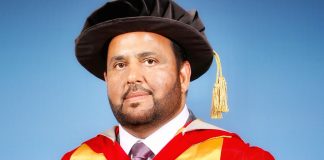The question of whether British Muslims need to integrate more to be accepted is one that resurfaces time and again—often in moments of political tension, media scrutiny, or social debate. It suggests, subtly or otherwise, that Muslims in Britain remain on the margins of national life, despite decades of contribution to this country.
Many of us were born here. We grew up here, were educated in British schools, and are raising our families in cities, towns and villages across the UK. We are teachers, nurses, business owners, engineers, police officers, academics and elected representatives. We are part of the fabric of this nation. And yet, this question persists.
There is an implication behind it that belonging comes with conditions—that to be accepted, Muslims must continue to demonstrate loyalty, adopt certain cultural behaviours, or distance themselves from aspects of their identity. It is a sentiment that is both unfair and misplaced.
Integration, in its truest sense, is a two-way process. It is not about assimilation or the erasure of identity. It is about participation, mutual understanding, and respect. British Muslims have integrated in countless visible and invisible ways: through public service, civic engagement, charity work, and community leadership. Mosques and faith-based organisations are deeply involved in local life, offering food banks, youth programmes, mental health support, and interfaith dialogue.
Yet, despite this, Muslims still face some of the highest levels of discrimination and negative stereotyping. According to research from the University of Birmingham, Muslims remain one of the least liked groups in the country. These views are not the result of a lack of integration, but rather the persistence of misinformation, cultural misunderstanding, and, in some cases, deliberate political scapegoating.
There is a need for society to move beyond the narrow view that integration is something only minorities must do. We must shift the narrative. Rather than constantly asking whether Muslims have integrated enough, we should be asking what barriers are preventing full inclusion, and how we can all work to remove them.
British Muslims are not on the outside looking in—we are part of the national story. We care about the NHS, the cost of living, the quality of education, the future of our children—just like everyone else. We do not need to integrate more to be accepted. What we need is equal recognition, dignity, and a shared commitment to building a society where difference is not a problem to be fixed, but a strength to be embraced.




